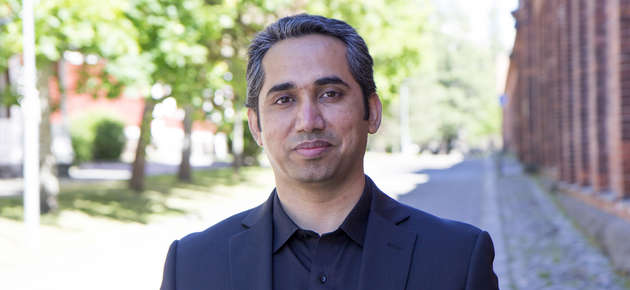Dissertation: “Good” Corporate governance mechanisms may encourage excessive risk-taking in ...

The results from Iqbal’s dissertation show that stronger corporate governance mechanisms and shareholder-friendly boards can lead to excessive risk-taking among financial institutions.

“For banks and other financial institutions, the optimal degree of risk-taking is higher than for non-financial firms. This is partly due to the expectation by the market that the government may support financial institutions if they become distressed,” says Iqbal.
“In addition, shareholder-friendly governance mechanisms may further encourage adopting riskier corporate policies which may, in turn, lead to higher risk-taking by financial institutions,” explains Iqbal who will defend his doctoral thesis on June 15 at the University of Vaasa.
Corporate governance and risk-taking in the financial industry
Because, banks and other financial institutions can generally take more risk than non-financial firms can, therefore are heavily regulated and supervised. For instance, the regulatory capital requirement for banks and other depository institutions ensures that these institutions have sufficient capital for smooth operations and do not become insolvent. This additional regulatory oversight is viewed both as substitute or complementary for corporate governance in financial institutions. In contrast to non-financial firms, expectation of government support in times of distress, implicit and explicit government guarantees, provide a different environment to consider financial institutions separately to explore the corporate governance-risk nexus.
“Because the presence of regulation affects the internal corporate governance mechanisms in financial institutions, most of the corporate governance studies excluded financial institutions from their sample. Thus, much of the corporate governance theory and research is limited to non-financial firms and we know little about the relationship between corporate governance and risk-taking by financial institutions,” explains Iqbal.
The results from his dissertation show financial institutions with stronger corporate governance mechanisms and shareholder-friendly boards had higher insolvency risk and greater systemic risk contributions. Moreover, the results show that US banks with “better” corporate governance mechanisms were riskier during the period of the global financial crisis in 2008.
Executive compensation can also affect the risk-taking by financial institutions
In his doctoral dissertation, Iqbal also examined the role of executive compensation structure and, in particular, incentive features of top management compensation contracts in risk-taking by banks and other financial institutions. Iqbal finds that managerial risk-taking incentives, from executive compensation, do not necessarily increase the systemic risk contributions of banks or other financial institutions. Moreover, Iqbal finds that greater pay inequality between the Chief Executive officer and other top executives reduces bank risk-taking.
Finally, Iqbal emphasizes that regulators should pay close attention to corporate governance mechanisms because stronger corporate governance mechanisms in the financial industry can encourage more risk-taking during the periods of economic turmoil, which can cause instability in the overall financial system.
Further information
Jamshed Iqbal, tel +358 44 9763225, jamshed.iqbal@uwasa.fi
Iqbal Jamshed (2018). Essays on the Relationship between Corporate Governance Mechanisms and Risk-Taking by Financial Institutions. Acta Wasaensia 403. Doctoral thesis. University of Vaasa. Vaasan yliopisto.
Publication pdf and publication orders: http://urn.fi/URN:ISBN:978-952-476-811-5
Jamshed Iqbal was born in 1984 in Gujranwala, Pakistan. He has a Bachelor’s degree in Finance from the University of the Punjab in Pakistan (2009) and a Master’s degree in Finance from the IQRA University, Islamabad, Pakistan (2012). He currently works as a grant-funded researcher at the University of Vaasa.
Public defence
The public examination of M.Sc. Jamshed Iqbal´s doctoral dissertation “Essays on the Relationship between Corporate Governance Mechanisms and Risk-Taking by Financial Institutions” will be held on Friday 15 June at 12 o´clock in auditorium Nissi (K218, Tritonia), University of Vaasa. The field of dissertation is accounting and finance.
Professor James H. Gilkeson (University of Central Florida, USA) will act as opponent and professor Sami Vähämaa (University of Vaasa) as custos. The examination will be held in English.